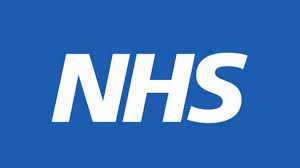Hormonal causes
- 28 Nov 2023
- 1 Minute to read
- Print
- PDF
Hormonal causes
- Updated on 28 Nov 2023
- 1 Minute to read
- Print
- PDF
Article summary
Did you find this summary helpful?
Thank you for your feedback
Sleep disturbances are among the most common symptoms of the menopause, being reported by 35-60% of post-menopausal women.
The most common symptoms are trouble falling asleep and difficulties maintaining sleep.
The aetiology of sleep problems in the menopause is uncertain, but may be due to:
- A decline in oestrogen levels. Oestrogen is involved in the metabolism of serotonin and other neurotransmitters that affects the sleep-wake cycle. Oestrogen also has a direct effect on mood and regulation of body temperature, keeping the central body temperature low at night.
- A decline in progesterone levels. Progesterone has both sedating and anxiolytic features. It stimulates the release of GABA, a sedating neurotransmitter that can facilitate sleep cycles. In addition, progesterone also acts as a respiratory stimulant, which may benefit sleep apnoea.
- Menopausal symptoms such as hot flushes, night sweats, palpitations, mood changes or urinary problems.
- Worsening restless leg syndrome. This increases in severity after menopause, regardless of the use of HRT.
- An increased incidence of sleep-disordered breathing during the menopause transition, although the mechanism of this is not clear.
References and Further Information:
- Schaedel Z, Holloway D, Bruce D et al. Management of sleep disorders in the menopausal transition. Post Reprod Health. 2021.
- Shabani F, Montazeri M, Abdolalipour S et al. The effect of mindfulness training on stress and sleep quality of postmenopausal women: A systematic review and meta-analysis. Post Reprod Health. 2022.
- Guidozzi F. Sleep and sleep disorders in menopausal women. Climacteric. 2013.
- Colrain I, Nicholas C and Baker F. Alcohol and the sleeping brain. Handb Clin Neurol. 2018.
- Lee j, Han Y, Cho H et al. Sleep in normal aging. Sleep Med Clinic. 2018.
- Perger E, Mattaliano P, Lombardi C. Menopause and sleep apnea. Epub. 2019.
Was this article helpful?

